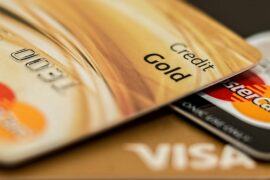This article may contain references to products or services from one or more of our advertisers or partners. We may receive compensation when you click on links to those products or services. Nonetheless, our opinions are our own.
The information presented in this article is accurate to the best of our knowledge at the time of publication. However, information is subject to change, and no guarantees are made about the continued accuracy or completeness of this content after its publication date.
- Which Debts to Prioritize to Raise Your Credit Score
- How Different Debts Influence Credit Scores
- Focusing on High-Interest Debt for Faster Results
- Repairing Credit by Addressing Delinquent Accounts
- Motivating Progress Through the Snowball Method
- Developing a Strategic Payment Order
- Tracking Credit Score Progress Throughout the Process
- Frequently Asked Questions
- Which debts influence credit scores the most?
- Is it better to pay down credit cards before personal loans?
- What should be done about multiple credit cards with balances?
- How are installment loans managed during repayment strategies?
- Does settling a debt help or hurt credit?
- What impact do late payments have on scores?
- Should a loan be used to consolidate older debts?
- How long does it take for a score to reflect changes from debt repayment?
- Recommended Reads
Which Debts to Prioritize to Raise Your Credit Score
Choosing the most strategic path for debt repayment can significantly influence your credit standing. Not all debts carry the same weight in credit scoring models, so the order in which balances are reduced matters. By approaching repayment with intention and clarity, one can achieve both financial stability and noticeable improvements to their credit profile.
How Different Debts Influence Credit Scores
Debts generally fall into two primary categories: revolving and installment. Revolving credit, such as credit cards, allows a borrower to draw funds up to a limit and carry a balance month to month. These accounts have a notable impact on credit utilization, a major factor in credit scoring models. Installment loans, on the other hand, consist of a fixed balance paid in regular intervals; examples include auto loans and mortgages.
Credit scores are shaped by how these debts are managed. Several elements carry particular influence:
- Credit utilization: A lower percentage of credit used compared to the total limit improves overall scores. The optimal range remains under 30%.
- Payment history: Regular, on-time payments build a positive credit record and influence the largest portion of most scoring formulas.
- Length of credit history: Older accounts contribute favorably, so closing aged accounts can sometimes cause an unintended dip in score.
| Debt Type | Credit Score Impact |
|---|---|
| Revolving Credit (e.g., credit cards) | High – Affects credit utilization and balance |
| Installment Loans (e.g., personal loans, auto loans) | Moderate—Impacts payment consistency and credit history |
Strategic repayment begins with knowing how each category interacts with scoring mechanisms. Prioritizing revolving credit often provides faster results due to the influence on utilization ratios.
Focusing on High-Interest Debt for Faster Results
High-interest debt not only accumulates costs but also places significant pressure on monthly budgets. Credit cards frequently fall into this category and are often the most effective to address early in a repayment strategy. Reducing these balances serves two purposes: minimizing interest expenses and enhancing credit utilization metrics.
Target the highest-interest account while maintaining minimum payments on others. This is often referred to as the avalanche method and can lead to long-term savings and faster progress toward financial health.
Voted "Best Overall Budgeting App" by Forbes and WSJ
Monarch Money helps you budget, track spending, set goals, and plan your financial future—all in one app.
Get 50% OFF your first year with code MONARCHVIP
Repairing Credit by Addressing Delinquent Accounts
Accounts that have fallen behind or entered collections demand timely attention. These items can significantly reduce credit scores and serve as warning signs to lenders. Addressing them early helps shift the credit report toward a more favorable representation.
Effective steps include:
- Communicating with creditors to discuss payment arrangements or reduced settlements.
- Making consistent, timely payments, even modest amounts, contributes to score recovery.
- Reviewing credit reports regularly to confirm that resolved accounts are accurately updated.
| Debt Type | Suggested Priority | Recommended Action |
|---|---|---|
| Credit Cards | High | Negotiate and pay promptly |
| Personal Loans | Medium | Establish regular payments |
| Utility Bills | Lower | Resolve outstanding charges |
Prompt management of overdue debts often lays the groundwork for credit repair. As delinquencies age or are paid off, their influence diminishes, allowing positive activity to dominate.
Motivating Progress Through the Snowball Method
For some, the most effective repayment plan is one that builds psychological momentum. The snowball method recommends paying off the smallest debts first, regardless of interest rate. This strategy creates early wins that can provide the encouragement needed to sustain long-term effort.
To apply this structure:
- List all debts from the smallest to the largest balance.
- Allocate any extra payments to the smallest account while making minimum payments on others.
- Once the smallest is resolved, move on to the next in line.
This approach not only simplifies account management but also reduces the number of open balances, which may improve credit standing over time by demonstrating responsible financial behavior.
Developing a Strategic Payment Order
Ranking debts by both interest rate and impact on credit score can lead to a more efficient payoff sequence. While small balances provide psychological encouragement when eliminated, high-interest accounts offer the most financial relief and score benefit when reduced.
A blended approach may be ideal: address one or two small balances first for momentum, then transition to high-interest accounts for maximum return on payment efforts.
Tracking Credit Score Progress Throughout the Process
Regular monitoring of credit reports and scores provides insight into how each repayment decision influences overall financial standing. Several scoring factors are affected as debts are reduced:
- Timely payments: These contribute the most to score improvement. Any missed or late payment can negate other efforts.
- Credit utilization ratio: Reducing balances below 30% of credit limits can offer quick score increases.
- Credit mix and inquiries: Maintaining a healthy variety of account types and minimizing new applications supports long-term health.
| Factor | Approximate Influence on Score |
|---|---|
| Payment History | 35% |
| Credit Utilization | 30% |
| Length of Credit History | 15% |
| Credit Mix | 10% |
| New Credit Inquiries | 10% |
As positive behaviors continue, scores may rise gradually, with more significant improvements occurring over months. Consistency remains the most valuable component of credit rehabilitation.
Frequently Asked Questions
Which debts influence credit scores the most?
Revolving credit, such as credit card balances, typically has the greatest effect due to its role in utilization ratios and its tendency to fluctuate.
Is it better to pay down credit cards before personal loans?
In most cases, yes. Credit card debt impacts credit utilization directly, so reducing those balances often yields faster credit score improvements.
What should be done about multiple credit cards with balances?
Begin with the card carrying the highest interest rate while maintaining minimum payments on the rest. This saves money and improves score metrics efficiently.
How are installment loans managed during repayment strategies?
These should be maintained with regular payments. While they have a smaller impact on credit score changes, missed payments can still cause significant harm.
Does settling a debt help or hurt credit?
While settling can resolve the obligation, it may leave a negative mark if not paid in full. Whenever possible, full repayment is preferable for credit score recovery.
What impact do late payments have on scores?
They carry significant weight, especially if recent. Bringing accounts current should be a top priority in any credit improvement plan.
Should a loan be used to consolidate older debts?
While consolidation can help simplify payments and potentially reduce interest, caution is warranted. Ensure new debts do not lead to further borrowing habits or exceed manageable terms.
How long does it take for a score to reflect changes from debt repayment?
Updates often appear within a few billing cycles, though lasting improvements may take several months depending on the individual’s full credit history.

Reviewed and edited by Albert Fang.
See a typo or want to suggest an edit/revision to the content? Use the contact us form to provide feedback.
At FangWallet, we value editorial integrity and open collaboration in curating quality content for readers to enjoy. Much appreciated for the assist.
Did you like our article and find it insightful? We encourage sharing the article link with family and friends to benefit as well - better yet, sharing on social media. Thank you for the support! 🍉
Article Title: Which Debts to Pay Off First to Raise Credit Score
https://fangwallet.com/2025/05/23/improve-credit-score/The FangWallet Promise
FangWallet is an editorially independent resource - founded on breaking down challenging financial concepts for anyone to understand since 2014. While we adhere to editorial integrity, note that this post may contain references to products from our partners.
The FangWallet promise is always to have your best interest in mind and be transparent and honest about the financial picture.
Become an Insider

Subscribe to get a free daily budget planner printable to help get your money on track!
Make passive money the right way. No spam.
Editorial Disclaimer: The editorial content on this page is not provided by any of the companies mentioned. The opinions expressed here are the author's alone.
The content of this website is for informational purposes only and does not represent investment advice, or an offer or solicitation to buy or sell any security, investment, or product. Investors are encouraged to do their own due diligence, and, if necessary, consult professional advising before making any investment decisions. Investing involves a high degree of risk, and financial losses may occur including the potential loss of principal.
Source Citation References:
+ Inspo
There are no additional citations or references to note for this article at this time.













































